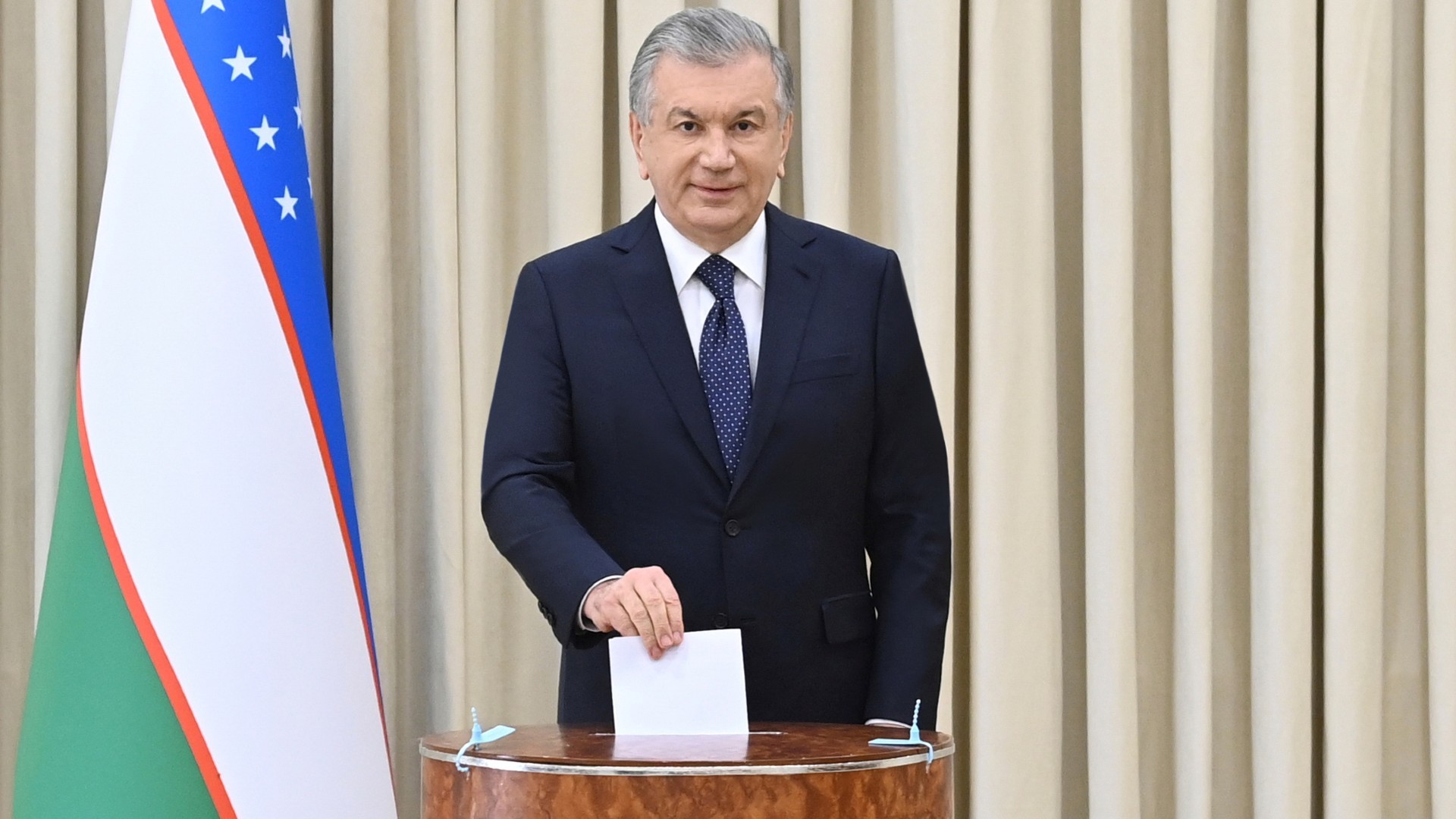Uzbek President Shavkat Mirziyoyev has been the president of Uzbekistan since 2016. He was re-elected in an early election on 9 July 2023, where he won more than 87% of the vote.
Mirziyoyev was born on 14 July 1957 to a family of doctors in the Jizzakh region of Uzbekistan. He graduated in 1981 from the Tashkent Institute of Irrigation and Agricultural Mechanisation Engineers with a degree in mechanical engineering. He has a PhD in engineering and is an associate professor.
He began his political career in 1990 as a deputy in the Supreme Soviet of the Uzbek Soviet Socialist Republic. He then worked as the khokim (mayor) of the Mirzo-Ulugbek district of Tashkent in 1992, the khokim (governor) of the Jizzakh region in 1996, and the khokim of the Samarkand region in 2001, while simultaneously serving as a deputy in the Oliy Majlis (Parliament of Uzbekistan) from 1995 to 2003. On the strength of his significant contributions to the socioeconomic development of the regions he oversaw, Mirziyoyev was appointed prime minister of Uzbekistan in 2003. The Oliy Majlis later approved him as prime minister on three more occasions: in 2005, 2010 and 2015.
In September 2016, following the death of former Uzbek President Islam Karimov, Mirziyoyev was named interim president and was later elected as president in December 2016.
During Mirziyoyev’s presidency, Uzbekistan has undergone a radical transformation, changing from within and improving its reputation in the international arena. Mirziyoyev’s reforms, which have dramatically improved the quality of life of Uzbek citizens as well as the economy and politics in general, have been called the ‘honour and dignity’ reforms.
Mirziyoyev carried out major reforms based on honour and dignity that were aimed at changing the political system, improving the public administration by making it more open and transparent, liberalising the economy, creating a favourable business environment and investment climate, ensuring the rule of law, and strengthening guarantees of human rights, freedom of speech and freedom of the media in Uzbekistan.
Shavkat Mirziyoyev also reformed the tax system and implemented social projects aimed at reducing poverty and improving sustainability for future generations.
Mirziyoyev created mechanisms for an open and profit-generating free-market economy and liberalised foreign exchange, which virtually eliminated the black market for foreign currencies. He removed barriers to the movement of goods and people, as well as customs duties, putting an end to protectionist policies and building a new liberal economy.
He is known for his foreign-policy strategy aimed at creating an atmosphere of trust and good-neighbourly relations in the Central Asian region, and for stepping up cooperation with all the country’s partners, including the world’s leading powers and international organisations.
Uzbekistan is now developing in line with Mirziyoyev’s New Uzbekistan 2022–2026 programme, which is aimed at consolidating reforms and turning the country into a destination for foreign tourism and investment in Central Asia. The programme’s goals include economic growth and stability, an increase in per capita GDP to USD 4,000, free-market competition and the elimination of heavy-handed state regulation.
The programme is a continuation of the Action Plan for 2017–2021, in which Mirziyoyev identified five priorities.
